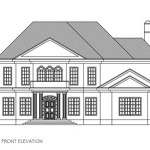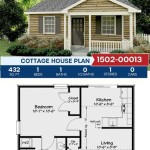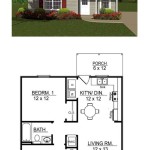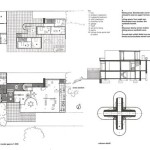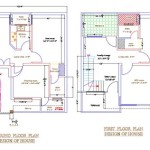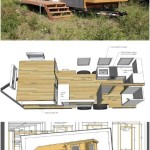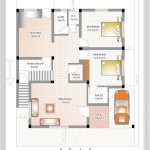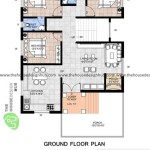Quality Modular Home Plans: A Comprehensive Guide
Modular homes, once perceived as a niche housing solution, are rapidly gaining mainstream appeal. This shift is driven by a confluence of factors, including rising construction costs, increasing demand for sustainable building practices, and a growing appreciation for the efficiency and quality offered by modular construction. Understanding the nuances of quality modular home plans is crucial for anyone considering this innovative approach to homeownership.
Key Considerations for Quality Modular Home Plans
Choosing a modular home plan requires careful consideration of several crucial elements. These factors will significantly impact the final product's quality, cost, and overall satisfaction.
1.
Architectural Design:
The architectural style of the modular home is paramount. Options range from classic designs like ranch and Cape Cod to more contemporary styles like modern farmhouse and minimalist. The chosen design should reflect personal preferences while also considering the surrounding environment and local building codes.2.
Floor Plan Functionality:
A well-designed floor plan is essential for comfortable living. This involves optimizing space utilization, ensuring efficient traffic flow, and incorporating desired features like open-concept living areas, ample storage, and strategically placed windows for natural light.3.
Energy Efficiency:
Modular homes offer excellent opportunities for energy efficiency. Key considerations include high-performance insulation, energy-efficient windows and doors, and the use of sustainable materials. These features can significantly reduce energy consumption and lower utility bills.4.
Customization Options:
One of the advantages of modular construction is the ability to customize the home to meet specific needs and preferences. This can include modifications to the floor plan, exterior finishes, interior fixtures, and other design elements.Evaluating Modular Home Manufacturers and Builders
Selecting a reputable manufacturer and builder is just as crucial as choosing the right plan. The manufacturer's experience, quality control processes, and customer service are all critical factors to evaluate.
1.
Manufacturer Reputation:
Thoroughly research the manufacturer's track record. Seek out reviews and testimonials from previous customers to gain insights into their experiences. A manufacturer with a strong reputation for quality and customer satisfaction is essential.2.
Building Codes and Certifications:
Verify that the manufacturer adheres to all applicable building codes and industry standards. Look for certifications that demonstrate a commitment to quality and sustainability.3.
Warranty and Customer Support:
A comprehensive warranty provides peace of mind. Inquire about the warranty coverage for different components of the home and the level of customer support provided after delivery and installation.Budget and Financing for Modular Homes
Understanding the financial aspects of modular home construction is crucial for successful project completion. Budgeting accurately and securing appropriate financing are key steps in the process.
1.
Cost Estimation:
Obtain detailed cost estimates from the manufacturer, including the price of the modules, transportation, site preparation, foundation work, and on-site assembly. Factor in potential cost overruns and contingencies.2.
Financing Options:
Explore various financing options available for modular homes, including conventional mortgages, construction loans, and specialized modular home financing programs. Compare interest rates, loan terms, and other relevant factors.3.
Land Acquisition:
If land is not already owned, factor in the cost of acquiring suitable land for the modular home. Consider factors such as location, size, zoning regulations, and utility access.Site Preparation and Installation
Proper site preparation and efficient installation are vital for the long-term stability and performance of the modular home.
1.
Site Assessment:
A thorough site assessment is necessary to determine the suitability of the land for modular construction. This assessment considers factors like soil composition, topography, drainage, and access for delivery and installation equipment.2.
Foundation Construction:
The foundation must be properly engineered and constructed to support the weight of the modular home. Common foundation types include basement, crawlspace, and slab-on-grade foundations.3.
Module Delivery and Installation:
The delivery and installation process requires careful coordination and experienced professionals. Modules are transported to the site and craned into place, followed by on-site finishing work.Long-Term Maintenance and Value
Modular homes, when properly maintained, can offer long-term value and durability comparable to traditionally built homes.
1.
Regular Maintenance:
Establish a regular maintenance schedule to address tasks like cleaning gutters, inspecting roofing, and servicing HVAC systems. Preventative maintenance can help extend the lifespan of the home and prevent costly repairs.2.
Warranty Considerations:
Familiarize oneself with the warranty terms and conditions provided by the manufacturer and builder. Understand the coverage periods for different components and the process for filing warranty claims.3.
Resale Value:
Modular homes, particularly those built to high-quality standards, can hold their value well in the real estate market. Factors influencing resale value include location, design, condition, and overall market trends.Benefits of Choosing a Quality Modular Home Plan
Quality modular home plans offer several distinct advantages compared to traditional construction methods.
1.
Faster Construction Time:
Modular homes are constructed in a controlled factory environment, significantly reducing construction time compared to site-built homes. This faster turnaround can translate to earlier occupancy and cost savings.2.
Sustainable Building Practices:
Modular construction offers opportunities for sustainable building practices, such as reducing material waste, utilizing recycled materials, and optimizing energy efficiency. These practices contribute to a smaller environmental footprint.3.
Cost-Effectiveness:
Modular homes can offer cost advantages compared to traditional construction, particularly in regions with high labor costs. The controlled factory environment allows for efficient material usage and minimizes waste.
Modular Home Floorplans Layouts Next

Modular Home S Supreme Homes

Manufactured Home Floor Plans Cad Pro

Modular Home S Supreme Homes

Custom Modular Homes Home Builder Renovations

Custom Built Modular Homes From Factory Made Modules To Modern Stoughton Ma

Design Collection Overview Quality Homes Custom Home Cottage Builder

23 Best Modular Homes

Luxury Modern Modular Homes Beautiful Manufactured

Top Five Most Popular Modular Home Floor Plans

